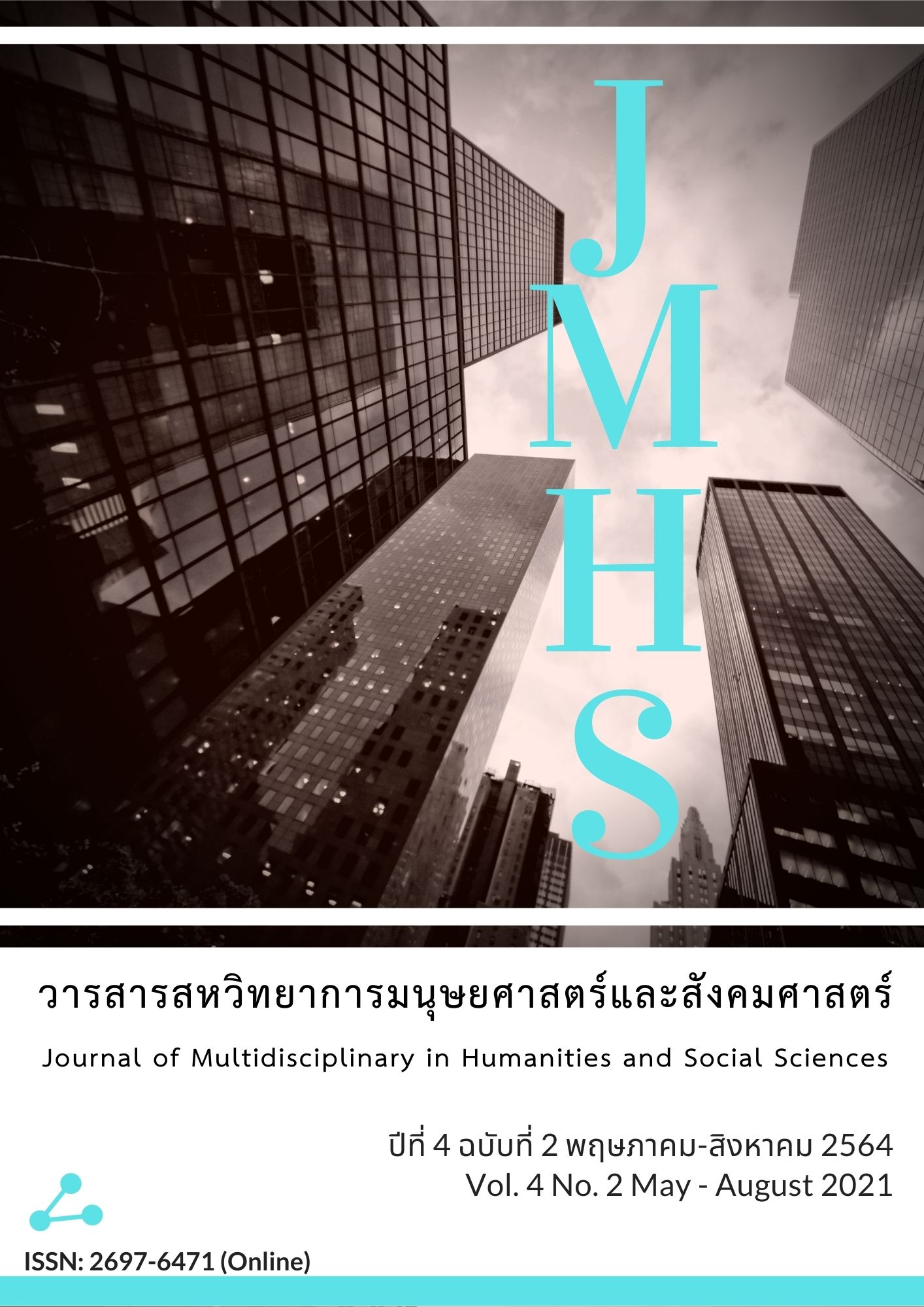The Dissolution of Political Parties by the Constitutional Court by the Majority Vote
Main Article Content
Abstract
The purposes of this study were as follows: 1) to study the concept, theories, the Supreme Court, research the laws of Thailand and foreign countries on the causes of dissolution of political parties and ordinary majority resolutions of the Constitutional Court; 2) study the problems of dissolution of political parties by the Constitutional Court according to the resolutions Common majority; and 3) to suggest guidance on how to amend the law to be more appropriate. This study was a qualitative research method by studying documents from the law academic textbooks, research, the judgment of the Supreme Court Information from websites, and an in-depth interview method by using the criteria for selecting those who have experience and expertise in constitutional law Election Law and Politician Law as follows: 1) Three experts in constitutional law, 2) Three electoral committee, and 3) Three politicians. From research, it was found that:
1. The birth of political parties was due to important theories, namely institutional theories, and historical and situational theories. The judgment of the constitutional judge Derived from the concept of the majority principle for the resolution of the dissolution of political parties of the Constitutional Court, the majority vote is decided.
2. The dissolution of political parties in Thailand had two major problems: 1) there were excessive and non-serious reasons for the dissolution of political parties, and 2) the Constitutional Court can use only common majority vote to dissolve political parties.
3. The researcher, therefore, recommends that Section 91 of the Political Party Act and Section 92 of the political party's termination should be amended. Which is not a serious cause and there are too many Therefore, Section 92 should be amended to retain only (1) - (2) and repeal (3) - (13). As for the resolution of dissolution of political parties as to the majority vote, the Constitution of the 2017 Constitution, Section 211 should be amended. The decision of the Constitutional Court is decided by a majority vote. In order to make the dissolution of political parties more difficult.
Article Details
Views and opinions appearing in the Journal it is the responsibility of the author of the article, and does not constitute the view and responsibility of the editorial team.
References
โกเมศ ขวัญเมือง. (2555). กฎหมายรัฐธรรมนูญและสถาบันทางการเมืองเปรียบเทียบ. กรุงเทพฯ: ภูทับเบิก.
ชรินทร์ สันประเสริฐ. (2554). พัฒนาการของรัฐไทย ในเอกสารการสอนชุดวิชาพื้นฐานทางสังคมและวัฒนธรรมของการเมืองไทย หน่วยที่ 4. นนทบุรี: มหาวิทยาลัยสุโขทัยธรรมาธิราช.
ไทยพับลิก้า. (2563, 19 กุมภาพันธ์ ). 22 ปีศาลรัฐธรรมนูญยุบ 210 พรรค. สืบค้นเมื่อ 20 ตุลาคม 2563, จาก https://thaipublica.org/2020/02/thailand-election-2562-85/
พัฒนะ เรือนใจดี. (2553). กฎหมายว่าด้วยพรรคการเมือง. กรุงเทพฯ: มหาวิทยาลัยรามคำแหง.
ปริญญา เทวานฤมิตรกุล. (2558). การยุบพรรคการเมืองโดยองค์กรวินิจฉัยความชอบด้วยรัฐธรรมนูญ. กรุงเทพฯ: สำนักงานศาลรัฐธรรมนูญ.
ปรีชา หงส์ไกรเลิศ. (2550). ยุทธศาสตร์เพื่อการเพิ่มประสิทธิภาพการบริหารงานภาครัฐ. วารสารดำรงราชานุภาพ, 4(10), 16-27.
ศุภพรรัตน์ สุขพุ่ม. (2559). เสียงข้างมากข้างน้อย. สืบค้นเมื่อ 25 ตุลาคม 2563, จาก http://wiki.kpi.ac.th/index.php?titl
สถาบันพระปกเกล้า. (2561). พรรคการเมือง. สืบค้นเมื่อ 5 พฤศจิกายน 2563, จาก http://wiki.kpi.ac.th/index.php?title
gold55. (2554). กำเนิดและวิวัฒนาการของพรรคการเมือง. สืบค้นเมื่อ 30 ตุลาคม 2563, จาก http://politicalparty-interestgroup-election.blogspot.com/2011/02/4.html


